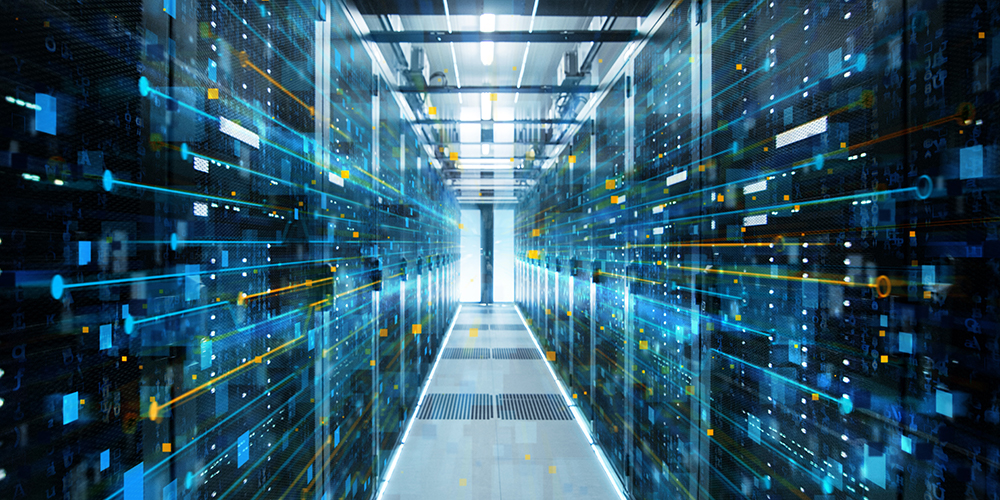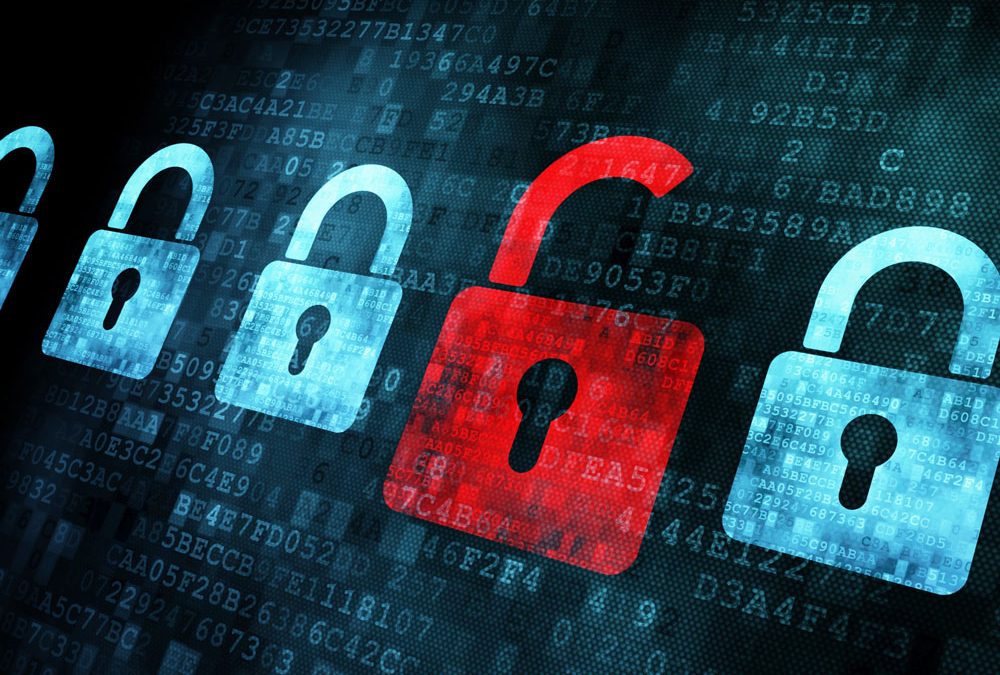
Mar 12, 2019 | SMB Technology, SMB Technology, SMB Technology, SMB Technology, Technology News
Cyber attacks and data breaches are regularly in the news, and often come with a loss or exposure of customers’ data and a loss of reputation to the business. Large, well-known businesses are often in the headlines; small to medium-size businesses, however, are just as much at risk. Knowledge of cybersecurity practices has yet to keep up with new threats. According to CompTIA’s 2018 Trends in Cybersecurity report, “Businesses with fewer than 100 employees are far more likely than their larger counterparts to feel that their IT security is simply adequate or unsatisfactory. Without a deep resource pool to lean on, smaller firms struggle to address new facets of IT security.” To learn more about protecting your data, read on. The Importance of Data Protection When a cyberattack occurs, customer data can be either lost or get in the hands of cybercriminals. As a result, customers can lose trust in your company to keep their data safe, data that is generated through online interactions with your company. How do you protect this data, your relationships with your customers, and your company’s bottom line? Your business may also be subject to regulatory compliance, such as following GDRP, HIPAA or PCI-DDS. As ever, it’s important to keep antivirus and anti-malware definitions up to date and to monitor your network. Backing up data in the Cloud is also an option to consider. But just as important is to develop a culture of cybersecurity in your organization. Develop a Culture of Cybersecurity Managers and CEOs can set the tone for a culture of cybersecurity by emphasizing the benefits of data protection. Not only...

Jan 9, 2018 | SMB Technology, SMB Technology, SMB Technology, SMB Technology, Technology News
The technology industry is working to patch two network security flaws known as Meltdown and Spectre Vulnerabilities. These hardware bugs can expose information being processed or stored in memory on your computer. While there are no known exploits, malware or phishing schemes specific to these network security vulnerabilities, this reminds us of the importance of Network Security best practices to protect Windows PCs and Macs, as well as Android and Apple iOS Mobile Devices. While the industry rushes to patch these network security vulnerabilities, here are some considerations to protect your network. Keep your Operating Systems Patches Up to Date Make sure you install security updates for your operating system and applications. Apple (AAPL), Google (GOOG), and Microsoft (MSFT) have already released some patches. You can do this manually through automated updates, or subscribe to a managed service to keep your network current. Keeping your browser up to date will also prevent websites from attacking your processor to steal your password and other privacy data. Don’t Forget Updates on Mobile Devices The Meltdown and Spectre Vulnerabilities serve to remind us of the importance of keeping smartphones, tablet computers, and other mobile devices updated with the latest operating system and related security patches. Also, remember to download software only from trusted sources. Employers should remember to review acceptable use policies to ensure they are up to date and that employees comply with company mobile device acceptable use. Train Your Employees on the Importance of Network Security Your employees are on the front line of defense for network security. Through periodic education and training your employees will implement strong passwords and...
Jun 1, 2017 | SMB Technology, SMB Technology, SMB Technology, Technology News
Last month’s blog provided information about ways to “Avoid Being Held Hostage by Ransomware.” Eight days later, on May 12, 2017, there was a global outbreak of the Wanna Cry Virus. With Cyber Threats on the rise, the importance of maintaining network compliance is top of mind with business owners and IT professionals alike. Industry compliance regulations, including PCI, HIPAA, and SOX, drive best practices in Network Compliance. However, most businesses today rely heavily on their systems to access Cloud Services, Voice, and Data Networks for mission-critical applications that run their business. What can you do to maintain network compliance? Automate Your Network Administration Keeping operating systems and network configurations up to date is a top priority for network compliance. Each device that connects to your network needs to have up-to-date operating system security patches, anti-virus definitions, and malware threat prevention in order avoid un- intended intrusion of your network. There are abundant tools and managed services to help your business stay up to date without adding to your internal labor cost. Proactively Monitor Your Network Monitor your network to identify any systems that are out of compliance. Proactive monitoring can also identify unauthorized devices connected to your network. You can monitor your network traffic to identify unusual use of network bandwidth. Aside from slowing down your systems, excessive bandwidth may be the result of a malware-infected device that is exploiting your network. Documenting Your Network Security Controls Achieving compliance with documented security procedures including password policy, systems maintenance, backup procedures, and compliance measures, is critical to following most industry compliance regulations. It is a best practice to update...
May 4, 2017 | SMB Technology, SMB Technology, SMB Technology, Technology News
Ransomware, spyware, phishing schemes, and other Cyber attacks are commonplace in today’s world of technology. According to a recent article in Forbes, ransomware attacks grew at an accelerated pace in 2016 with reports of 638 million attacks, almost 200 times more than the number of ransomware attacks in 2015. Most experts agree that Ransomware attacks will continue to occur–so what can you do to avoid being a ransomware hostage? Not All Ransomware is Created Equal Before you panic, find out what type of Ransomware you are up against. Scareware is a type of Ransomware that tricks you into thinking you have a bigger problem. A simple scan may quickly remove the pop from your browser cache and get you back on your way. Some ransomware is truly nasty — your entire system may be encrypted, meaning you will need to wipe your system and start over if you have a good backup. Otherwise, you may find yourself hostage to the cybercriminals to unlock your data. An Ounce of Protection is Worth a Pound of Ransom Data protection is an important element in minimizing the impact of Ransomware. Make sure your network security is fully compliant. Backup your data, update your antivirus definitions and make sure your security patches are up to date. Consider using Cloud Backup, Security as a Service, and Managed IT services to keep your network up to date. Having a strong offense to avoid ransomware is your best defense. Don’t Forget the Human Element Train your employees on a regular basis on the importance of staying vigilant against Cyberattacks and how to avoid being a hostage....
Jan 12, 2017 | SMB Technology, Technology News
Defending against Cyber threats is no easy task. Understanding the risks and designing a defense strategy are important steps in protecting yourself from Malicious actors and Cybercriminals. Staying current on Operating System and Application Patches, Restricting Network Access, and maintaining antivirus and malware protection are known ways to protect your network. Employee awareness and education on how to identify threats, and the importance of adhering to policies, also bolster your defense against cyber attack. If you’re not convinced, review the following Cyber threats you need to protect against. How Malicious Software (Malware) Works Malware is self-propagating software designed to infiltrate your network. This software can come in the form of a worm that will infect your network via your router via your Internet Protocol (IP) address. If it doesn’t find a hole in your network it may automatically update to scan for the next sequential IP Address, infiltrating and corrupting networks as it goes along. Avoid Malware by proactively scanning your network and keeping your network in compliance. Why Phishing Could Put You Out of Business Every year, millions of SPAM emails are sent to unwary recipients with the hope of collecting private and personal information including, account/password, privacy data and other information that can be exploited for profit. What’s more, Phishing is a popular way for Cybercriminals to distribute Ransomware, a form of malware that holds your systems hostage in exchange for payment. In the event of a data breach, your company may need to disclose the impact to customers and other stakeholders. In addition to ransom and legal fees, your company’s reputation may be on...




